If your child has been diagnosed with Attention Deficit Hyperactivity Disorder (ADHD), you may be wondering what you can do to help them. One important thing to understand is that ADHD is a neurological disorder. There are certain things you can do to help support your child’s brain. One of the most important neurotransmitters for people with ADHD is dopamine. Dopamine is responsible for focus, attention, and motivation. Increasing dopamine levels can help improve symptoms of ADHD.
There are many ways to increase dopamine naturally. Here are some simple tips that any parent can do to help their child’s brain function better.
Understanding Your Child’s Unique Brain
Understand how ADHD isn’t just about “being hyper” or “not paying attention.” It’s a complex neurological condition that affects how your child’s brain processes information, regulates emotions and interacts with the world around them.
Dive deep into the science behind dopamine, the brain’s feel-good neurotransmitter. Discover how dopamine deficiency impacts your child’s ability to focus, stay motivated, and regulate their behavior. It’s like uncovering the secret sauce that makes your child who they are!
By understanding the intricate connection between ADHD and dopamine, you’ll gain valuable insights into your child’s challenges and strengths. Armed with this knowledge, you’ll be better equipped to support and advocate for your child as they navigate the ups and downs of ADHD. So let’s embark on this enlightening journey together and unlock the secrets of your child’s amazing brain!
Risk Factors that Contribute to Dopamine Deficiency
Several risk factors may contribute to dopamine deficiency in children with ADHD. These may include:
- Genetic factors: Certain genetic variations can lead to lower dopamine levels in individuals with ADHD. Research has identified genes linked to dopamine function that may contribute to ADHD development. However, genetics is just one piece of the puzzle. Environmental and social factors also play a role in ADHD.
- Environmental factors: Exposure to toxins or stressors in the environment can disrupt dopamine in the brain. Heavy metals, air pollution, and other harmful substances can cause this disruption. Research suggests that children with ADHD might encounter more of these environmental triggers. However, more research is needed to fully understand how these factors affect dopamine levels.
- Poor nutrition: A diet lacking in essential nutrients like protein, iron, and B vitamins can lead to low dopamine levels. These nutrients are crucial for brain function and neurotransmitter production, including dopamine. Poor nutrition can stem from various factors, such as limited access to healthy food, selective eating habits, or underlying medical issues.
- Chronic stress: It can be triggered by things like trauma, family issues, or feeling isolated. This ongoing stress can throw off dopamine production, impacting both the brain and the body.
- Substance abuse: Amphetamines and cocaine can spike dopamine temporarily, but with long-term use, they actually lower dopamine levels, leading to addiction and other problems.
- Medical conditions: Parkinson’s disease, which damages dopamine-producing cells, causing symptoms like tremors and stiffness. Other conditions, like hormone imbalances or brain injuries, can also throw off dopamine levels.
Symptoms of Low Dopamine Levels
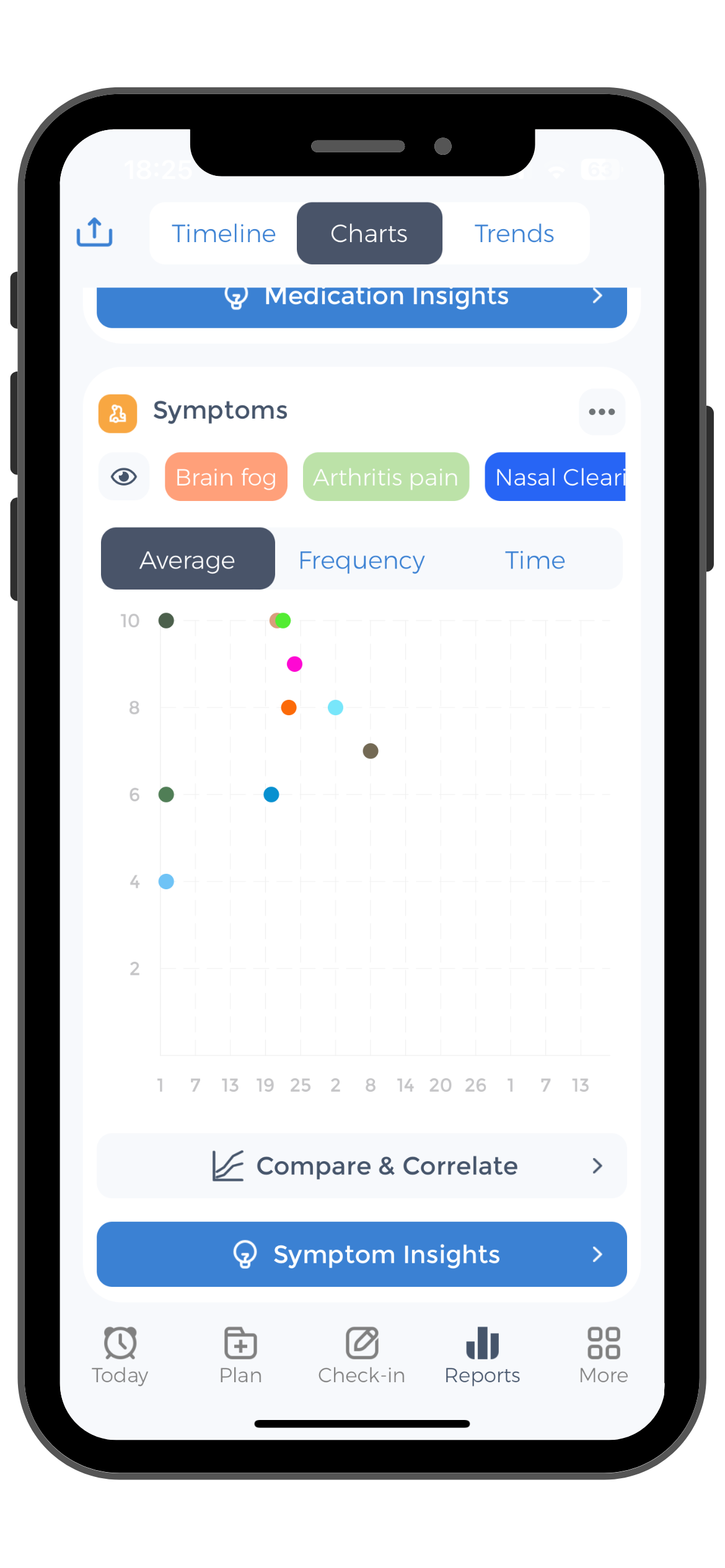 Several signs and symptoms may indicate dopamine deficiency, especially in individuals with Attention Deficit Hyperactivity Disorder. These may include:
Several signs and symptoms may indicate dopamine deficiency, especially in individuals with Attention Deficit Hyperactivity Disorder. These may include:
- Difficulty focusing or paying attention
- Lack of motivation or drive
- Poor impulse control
- Difficulty with memory or learning
- Depression or low mood
- Difficulty with problem-solving or decision-making
- Sleep problems
- Increased cravings for drugs or other unhealthy behaviors
It is important to note that these symptoms can be caused by a variety of factors, and they do not necessarily indicate low dopamine levels.
How To Increase Dopamine for your ADHD Brain Naturally
There are several ways to increase dopamine levels in individuals with ADHD, including medications such as stimulants and non-stimulants, as well as natural strategies such as regular exercise, a healthy diet, and engaging in enjoyable activities. Continue reading below as we describe each in more detail.
Eat foods rich in protein and healthy fats
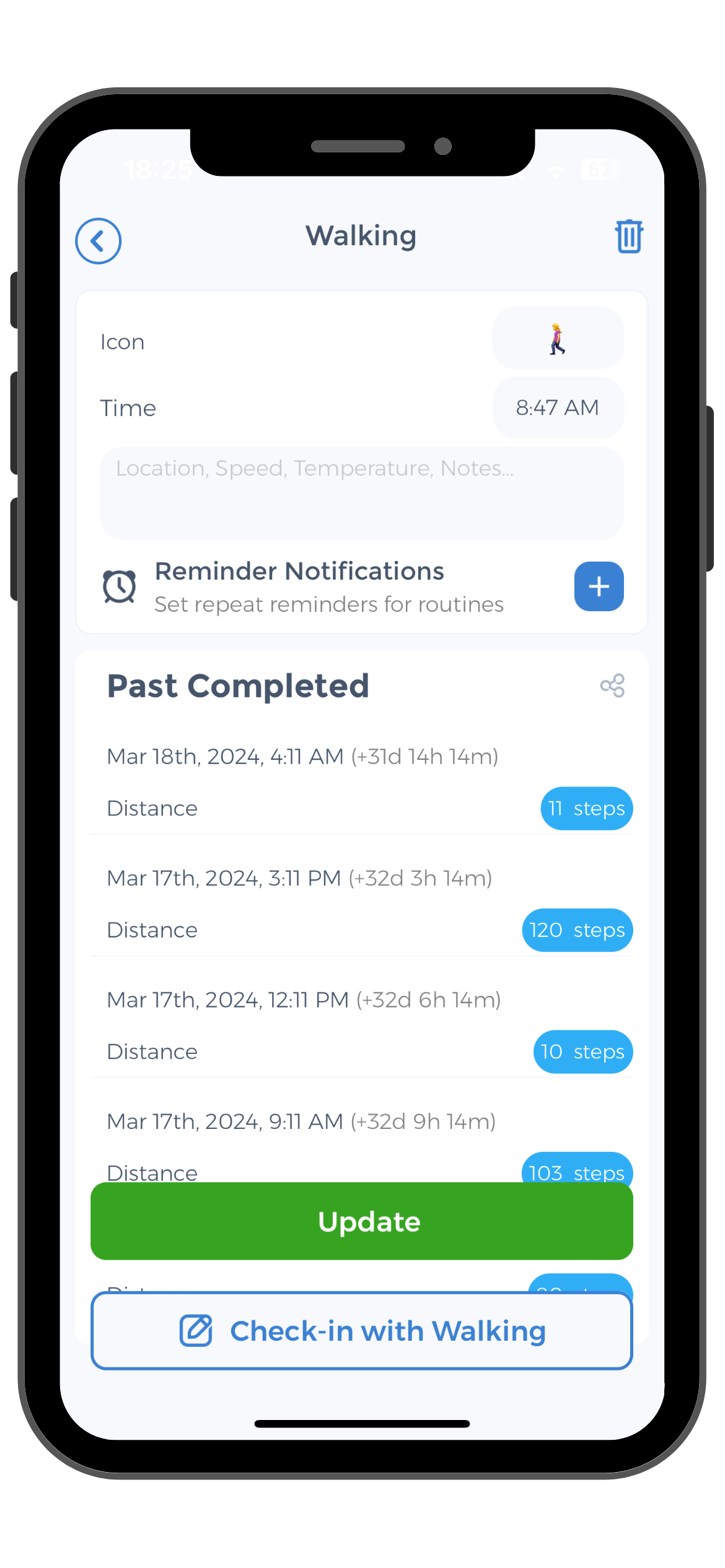 It’s important to emphasize the significance of including foods rich in protein and healthy fats in your child’s diet to promote optimal cognitive function and combat fatigue. These nutrients play a crucial role not only in sustaining physical energy but also in fueling cognitive processes. By ensuring an adequate intake of quality proteins and healthy fats, you can effectively support your child’s ability to stay sharp and focused on tasks.
It’s important to emphasize the significance of including foods rich in protein and healthy fats in your child’s diet to promote optimal cognitive function and combat fatigue. These nutrients play a crucial role not only in sustaining physical energy but also in fueling cognitive processes. By ensuring an adequate intake of quality proteins and healthy fats, you can effectively support your child’s ability to stay sharp and focused on tasks.
When our bodies receive the necessary fuel from these nutrients, they are better equipped to maintain mental clarity and enhance concentration. If your child is experiencing sluggishness or difficulty concentrating, it may be beneficial to prioritize incorporating foods such as nuts, seeds, avocado, salmon, Greek yogurt, and eggs into their meals and snacks. These options are rich sources of protein and healthy fats, providing essential nutrients to support brain health and function.
Consistently seeking out and incorporating these nutritious foods into your child’s diet can have a significant impact on their ability to improve focus and concentration. By making informed dietary choices and prioritizing the consumption of foods that support cognitive function, you can empower your child to thrive both academically and in their everyday activities.
Few options that are high in healthy fats and protein
Exercise regularly
Regular exercise benefits both physical and mental health for everyone in the family. It not only maintains fitness but also triggers the release of dopamine, enhancing brain function. Research shows that consistent physical activity reduces the risk of mental health conditions like depression and enhances concentration, aiding in task focus.
To strengthen both body and mind, integrate daily exercise into your routine. Even simple activities like walking around the block or doing jumping jacks in the living room can yield significant benefits.
Get enough sleep every night
Understanding the importance of sufficient sleep is crucial. Adequate rest allows us to maintain productivity, efficiency, and alertness throughout the day. Conversely, insufficient sleep leads to irritability and diminished focus and cognitive function. It affects problem-solving abilities, concentration, memory, and decision-making, impacting both work and daily life.
Quality sleep also enhances physical health by bolstering the immune system, combating illness, lifting mood, and reducing anxiety. Prioritize a good night’s sleep by disconnecting from screens earlier in the evening and prioritizing rest. It’s a simple yet effective way to optimize overall well-being.
Take supplements
Taking certain dietary supplements can be a great way to support cognitive health! Omega-3 fatty acids, magnesium, and probiotics can offer lots of benefits that help keep our brains healthy and functioning optimally. Omega-3s play an important role in brain development, memory, and mood, while magnesium aids in energy production for the body.
Probiotics are essential for healthy gut bacteria, which can influence cognitive function. As a bonus, the nutrient boost from these supplements can also improve physical health! So if you’re looking to give your brain a much-needed boost while achieving overall wellness, adding omega-3s, magnesium, and probiotics to your daily intake could make all the difference.
Practice stress-relieving activities
Staying calm and focused during stressful times can be a real challenge! As a mom, nurse, and blogger, it’s important to maintain mental clarity in my day-to-day life. One of the best ways I’ve found to keep my mind at ease is to practice stress-relieving activities like meditation or yoga. Taking even just 20 minutes out of your day to do some deep breathing, stretching, or guided visualization is enough to center you and help manage stress levels. Give it a try — with consistent practice, you’ll notice improved focus and concentration!
Stimulate your mind
Managing a busy life can be challenging, but carving out time for oneself is essential. Engaging in intellectually stimulating activities like puzzles or learning a new language can benefit mental well-being. Not only do they keep the mind sharp and support cognitive function, but they also offer relaxation and enjoyment.
Completing puzzles provides a sense of accomplishment, boosting self-confidence. Learning a new language opens up opportunities both personally and professionally by expanding communication skills. Regardless of the activity, they contribute to clarity and focus throughout the day, promoting overall mental wellness.
Track treatment using the CareClinic App
It is important to understand how important it is to track the effectiveness of your new treatment modalities. That’s why CareClinic provides you with a comprehensive dashboard that allows you to easily and accurately monitor patient outcomes. Whether it’s tracking vital signs, symptoms or side effects; CareClinic makes sure you have all the data needed for effective decision-making.
You can even use it to quickly access detailed patient reports and compare them to insight from other users on CareClinic. To elevate your new treatment methods, utilizing our App to monitor their effectiveness is the optimal approach! To try CareClinic for iOS or Android, click here.
Medications for Attention Deficit Hyperactivity Disorder
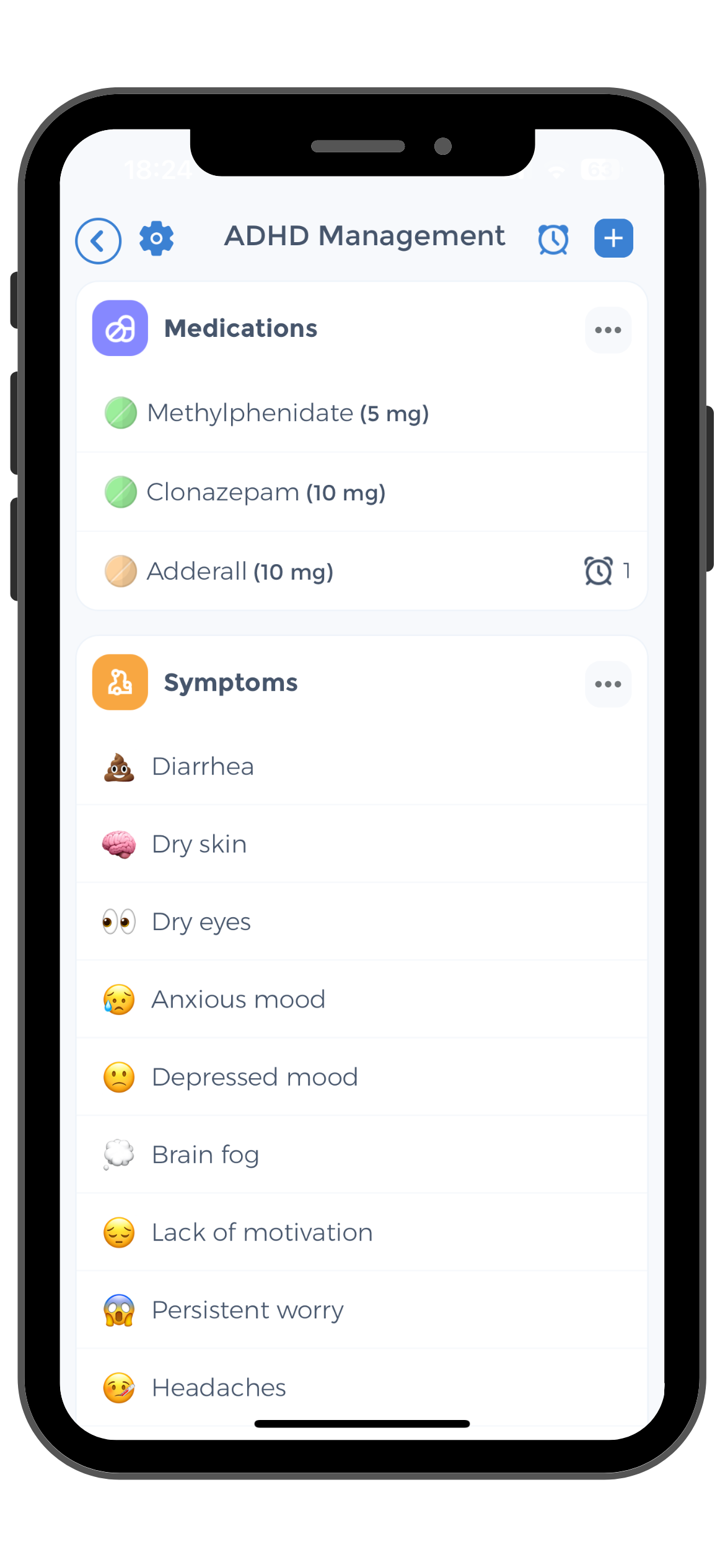 ADHD medications can be an effective treatment option for many individuals, but it is important to weigh the pros and cons and to work with a healthcare professional to determine the best course of treatment.
ADHD medications can be an effective treatment option for many individuals, but it is important to weigh the pros and cons and to work with a healthcare professional to determine the best course of treatment.
There are two main types of ADHD medications: stimulants and non-stimulants. Stimulant medications, such as methylphenidate (Ritalin) and amphetamines (Adderall), work by increasing dopamine levels in the brain. Which can help to improve focus and concentration. The medications typically serve as the primary treatment for ADHD symptoms, as studies demonstrate their efficacy in alleviating symptoms in many individuals. However, they can also yield potential side effects, including appetite suppression, sleep disturbances, and elevated heart rate and blood pressure.
Non-stimulant medications, such as atomoxetine (Strattera) and guanfacine (Intuniv), work by inhibiting the reuptake of neurotransmitters. Including dopamine, in the brain. Physicians may prescribe these medications as substitutes for stimulants. Or in combination with stimulants for individuals who do not respond well to or cannot tolerate stimulant medications. Non-stimulant medications tend to have fewer side effects than stimulants. But they may be less effective for some individuals.
When considering ADHD medications in children, it is important to work with a healthcare professional. To determine the best course of treatment. Factors to consider may include the severity of the child’s symptoms. The potential side effects of the medication, and the child’s overall health and medical history. It is also important to consider the child’s age and developmental stage. As some medications may be more suitable for certain age groups. As a side, you can always use our app to keep a medication log for tracking all your intake, and for your kids!
Supplements that Increase Dopamine ADHD
As a naturopath turned blogger, I have had the opportunity to learn about and work with a range of supplements. That may help to increase dopamine levels, especially in individuals with ADHD.
Here are a few examples:
Tyrosine
Tyrosine is an amino acid that is a precursor to dopamine. Supplementing with tyrosine may help to increase dopamine levels in the brain, which can improve focus and concentration.
SAM-e
A compound that is involved in the production of neurotransmitters, including dopamine. Some research has suggested that SAM-e may be effective in improving mood and reducing ADHD symptoms.
Vitamin B6
Is involved in the synthesis of dopamine and other neurotransmitters. Supplementing with vitamin B6 may help to increase dopamine levels in the brain and improve ADHD symptoms.
Zinc
An essential mineral that is involved in the production and metabolism of dopamine. Low levels of zinc have been associated with ADHD. Some research has suggested that zinc supplementation may be effective in improving ADHD symptoms.
Iron
An essential mineral that is involved in the synthesis of dopamine. Low levels of iron have been associated with ADHD. Some research has suggested that iron supplementation may be effective in improving ADHD symptoms.
Magnesium
An essential mineral that plays a role in the production and release of dopamine. Some research has suggested that magnesium deficiency may contribute to ADHD. And magnesium supplementation may be effective in improving ADHD symptoms.
Rhodiola
A herb that has been traditionally used to improve mental performance and reduce stress. Some research has suggested that rhodiola may help to increase dopamine levels in the brain and improve ADHD symptoms.
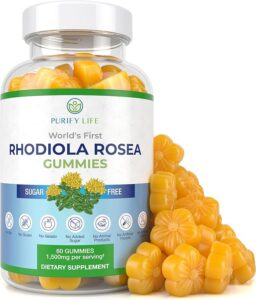 Sugar-Free Rhodiola Rosea Gummies
Sugar-Free Rhodiola Rosea Gummies
GABA
An inhibitory neurotransmitter that plays a role in regulating dopamine levels in the brain. GABA supplements may be effective in improving focus and reducing anxiety in individuals with ADHD. CareClinic helps with tracking anxiety as well.
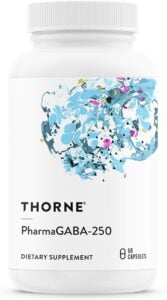 THORNE PharmaGABA-250 – GABA Supplement
THORNE PharmaGABA-250 – GABA Supplement
Ginkgo biloba
A herb that has been traditionally used to improve mental performance and memory. Some research has suggested that ginkgo biloba may help to increase dopamine levels in the brain. As well as improve ADHD symptoms.
Mucuna Pruriens
A plant that is rich in a compound called L-dopa, which is a precursor to dopamine. Some research has suggested that mucuna pruriens may be effective in improving mood and reducing ADHD symptoms.
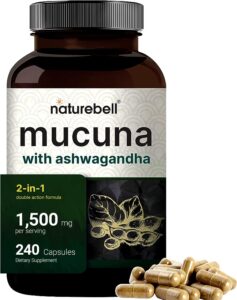 Naturebell Mucuna Pruriens Capsules
Naturebell Mucuna Pruriens Capsules
The Final Word: Tips for Enhancing Dopamine in ADHD Medication
Though it may seem like a lot of effort, following these tips is worth it. When you consider the benefits to your cognitive health and focus. By eating right, exercising, getting enough sleep, and taking supplements, you can help improve your brain function and keep your mind sharp. And don’t forget to stimulate your mind with mentally challenging activities on a regular basis. With a little bit of effort, you can keep your brain healthy and functioning at its best for years to come. Install the CareClinic App here.

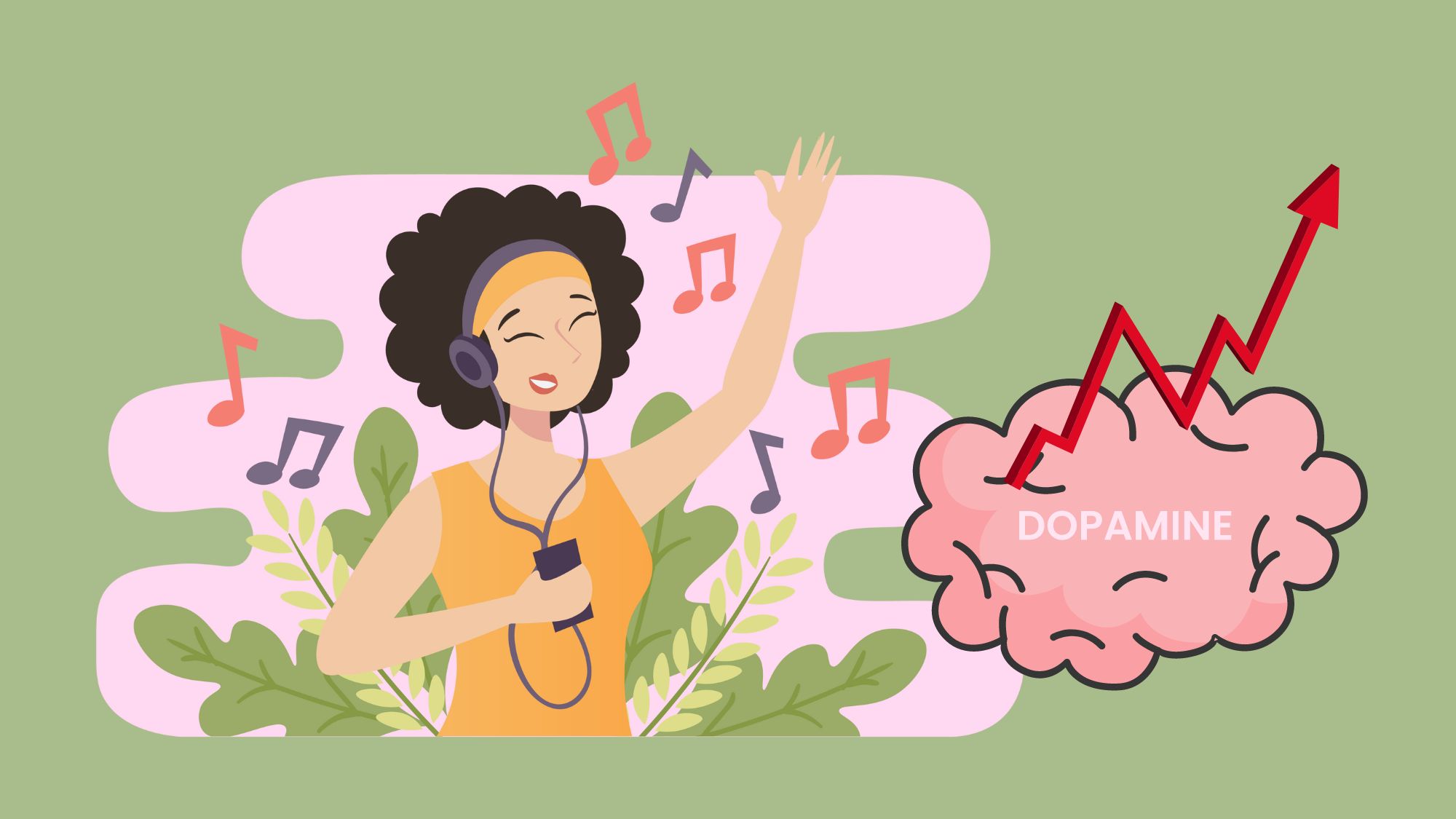


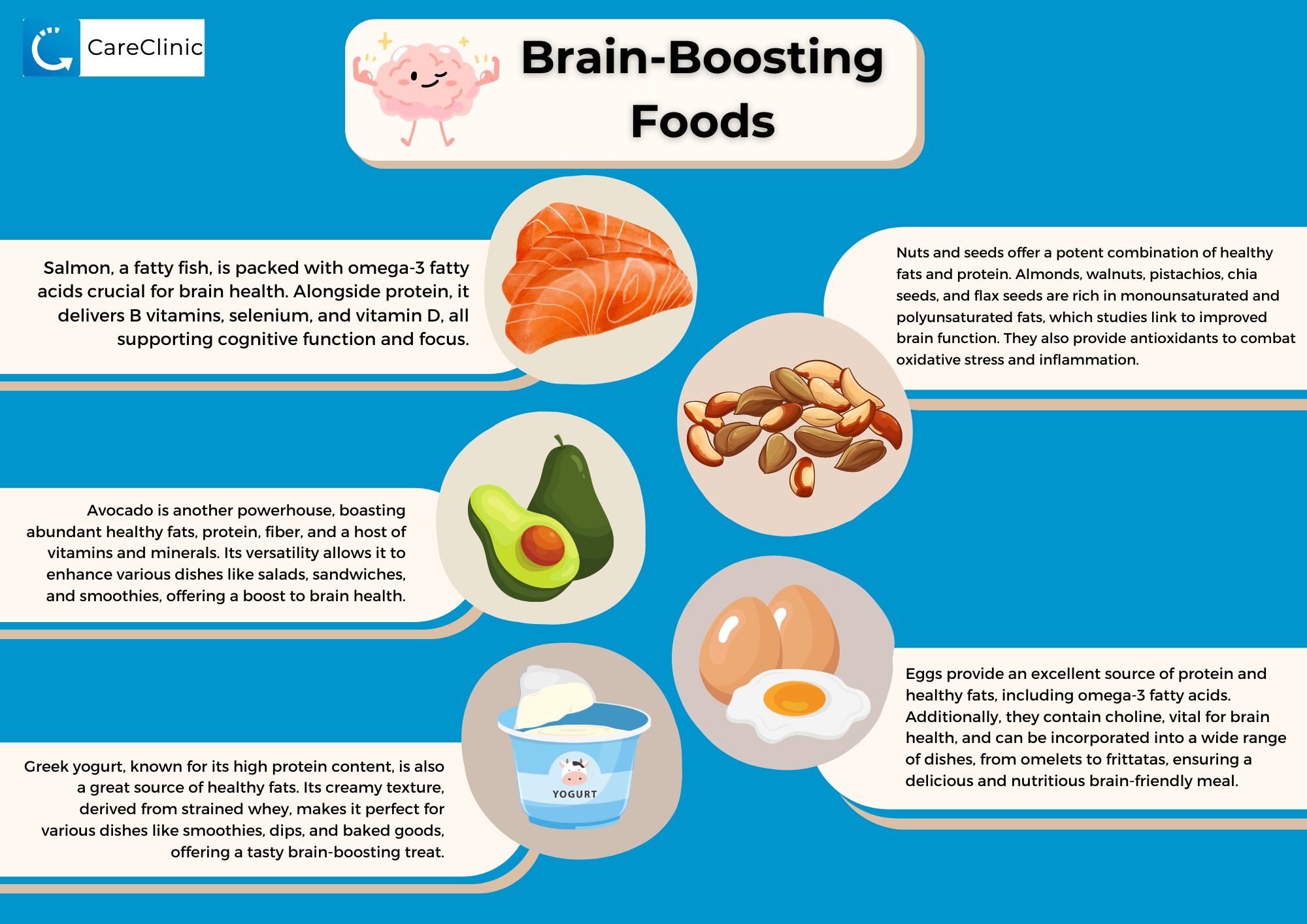
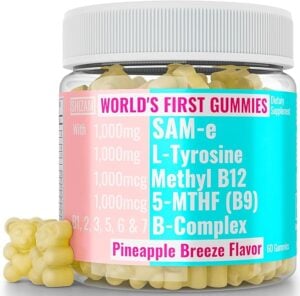 Tyrosine and SAM-e
Tyrosine and SAM-e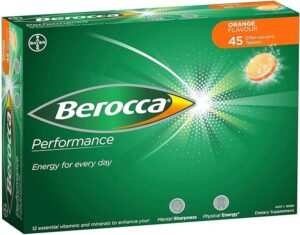 Berocca multivitamin
Berocca multivitamin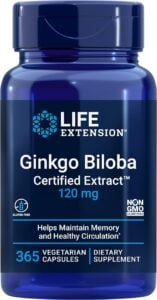 Life Extension Ginkgo Biloba
Life Extension Ginkgo Biloba